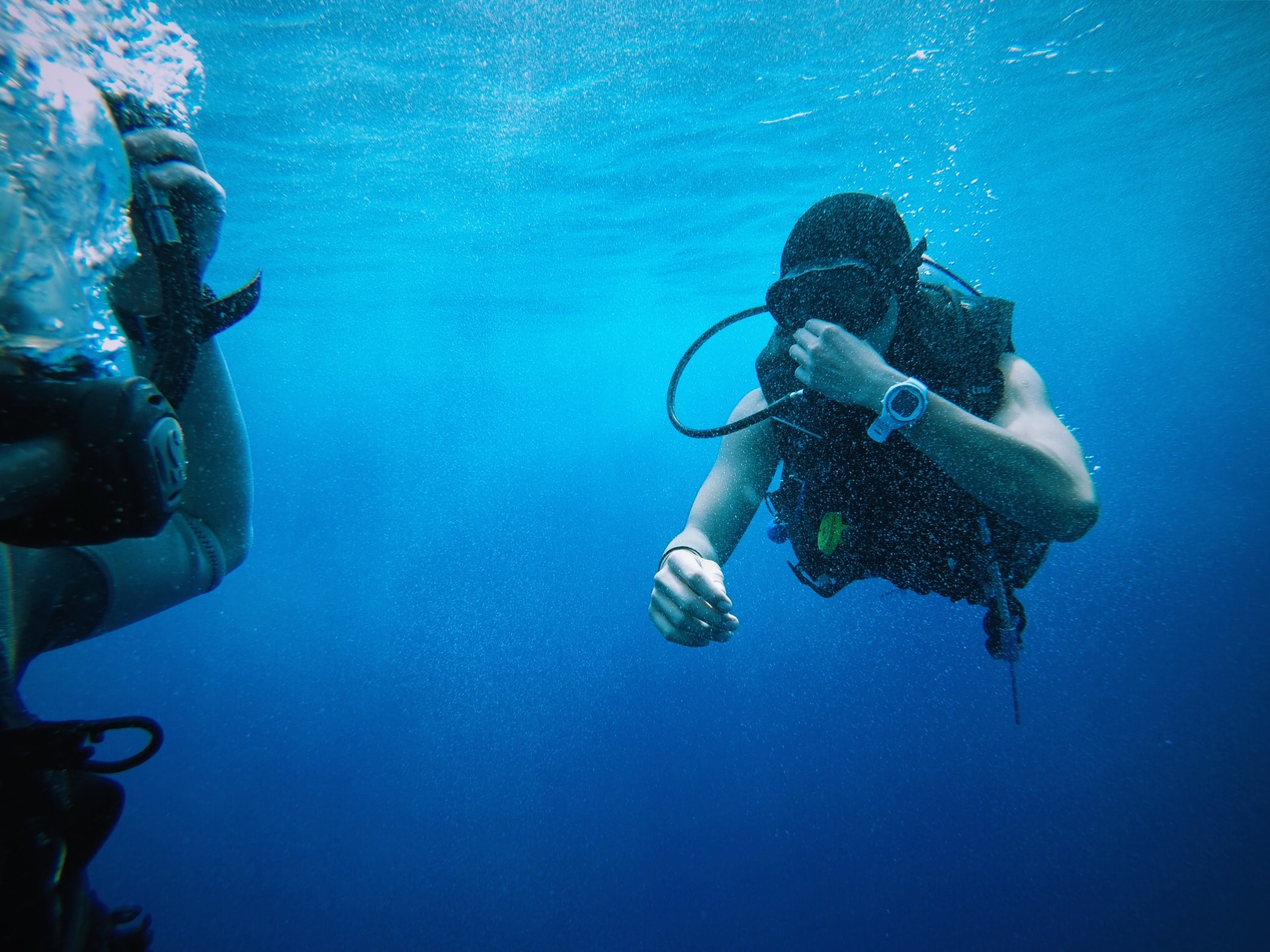There’s really nothing else like scuba diving.
The feeling of weightlessness and being able to move in all directions is unique unless you’re lucky enough to travel into space.
You’ll get to see fantastic aquatic creatures in their natural environment and gain a new perspective with this fun and social hobby.
But can anyone scuba dive, or are there limitations?
We’ll see that except for some specific medical conditions, almost anyone can scuba dive if they want to.
It might take some effort and time to gain confidence, but when you’ve broken that barrier, a wide underwater world awaits you.
- Is Scuba Diving for Everyone?
- Who Should Not Scuba Dive?
- Can Non-Swimmers Scuba Dive?
- Can You Scuba Dive Without Being Certified?
- Is There an Age Limit for Scuba Diving?
- Can You Go Scuba Diving With No Experience? (Without an Instructor Supervising)
- What Medical Conditions Can Stop You From Scuba Diving?
- Can Anyone Buy Scuba Gear?
- Conclusion
- You Might Also Like…
Disclosure: this post contains affiliate links (clearly marked with ), which means we may earn a commission if you buy something through them, at no additional cost to you.
Is Scuba Diving for Everyone?
You might have the view that scuba diving is only for the superfit and young, but really this isn’t the case.
Almost anyone who is willing to put in the time and effort needed for scuba training can become a certified diver.
While scuba diving can be an extreme sport, it can also be incredibly relaxed.
You just need to find the right kind of diving that suits your interests and abilities.
There are some medical conditions that we will discuss below that can mean that scuba diving isn’t considered safe.
However, fortunately, these can often be overcome with the consultation of a scuba diving doctor.
There are no upper weight limits for scuba diving, so long as you’re in good overall general health, and there aren’t maximum age limits either, which we will look at specifically later.
At a minimum age of eight years, children can try scuba diving for the first time with carefully controlled programs and can take a certification course from age ten.
Additionally, as the scuba diving industry has advanced, adaptive techniques have been developed, allowing people with disabilities to dive and readily enjoy the freedom and delights of being underwater.
The scuba diving hobby is open to almost anyone and is a fantastic way to experience something new and enriching.
Who Should Not Scuba Dive?
Aside from anyone ruled out for medical reasons, the best answer is someone who doesn’t want or is unable to.
Just like any other activity, scuba diving isn’t for everyone, and that’s quite ok.
It might be that the training required to certify is too time-consuming or intense, or perhaps that having given it a try, you just don’t like the feeling of being underwater.
That’s absolutely fine if that’s the case, as the very worst thing that you can do is force yourself if it’s not fun.
Whether it’s assembling and carrying the equipment or the procedures and techniques underwater, scuba diving does require some effort on your part.
If the overall activity isn’t enjoyable, then this might not be worth it.
There have been many instances of a partner or relation being encouraged to learn to dive when they’re not really into it.
Usually, this ends in disappointment all around, whatever the core reason is.
Our advice is to let them enjoy their diving and find something else to share that you can all get something from if you don’t like or are not interested in diving.
Can Non-Swimmers Scuba Dive?
To become a certified scuba diver, a basic swimming and comfort level in the water is required.
Entry-level diver courses include a water “float” test and a swim over a reasonably short distance.
While it’s not necessary to be an Olympic swimmer for this, you do need to be able to demonstrate a simple swimming competency and water comfort so that you’re safe.
If you do have any concerns about this, then it’s best to discuss them with the instructor before the course or perhaps take some swim lessons beforehand so that you’ll have the confidence.
Suppose someone just wants to try scuba diving without being certified.
In that case, it’s worth knowing that the swim test isn’t required for the commonly available “discover” introduction dives as they are always made under close instructor supervision.
These programs are ideal for someone wanting to experience what diving is like, and we’ll take a look at them next.
Can You Scuba Dive Without Being Certified?
If you’re short of time or just want to give scuba diving a try to see if you like it, then there are introductory programs available where you’re shown the basics and are supervised at all times by an instructor.
Rather than taking the time and financial commitment straight away for the complete certified diver course, these are a great way to get underwater and see what it’s all about.
All of the scuba training agencies offer their version, but essentially they allow you to experience being underwater for the first time in a pool or a sheltered environment and if you like it and depending on the locality, take part in a proper open water dive.
Take a look at these examples or the version offered by your local dive center:
- “Discover Scuba” program by PADI
- “Basic Diver” by SSI
- “Try Scuba” by NAUI
It’s pretty standard for people that are not interested in being fully certified but enjoy the scuba experience to repeat these introductions again and again.
This can be a great way to take part once in a while so long as you realize that making the introduction, no matter how many times you do them, does not make you a certified diver.
Is There an Age Limit for Scuba Diving?
There aren’t any set upper age limits to learn or go diving.
Suitability in the longer term for safe diving depends on an individual’s on-going health and fitness.
So long as you don’t develop any new, relevant health problems and can maintain a general level of fitness, then you can dive for as long as you want to.
Of course, as we all get older, things can change, and we might need to moderate ourselves and perhaps restrict the types of diving we do to something less extreme.
However, as long as you’re sensible and make sure that you discuss any changes in your health or fitness with a diving doctor, diving can be a hobby that you can continue as the years advance.
The youngest that someone can try scuba diving is eight years old.
In this situation, closely supervised programs like the Bubblemaker give children a fantastic opportunity to see what diving is like.
These are carried out in shallow water and in very small groups to maintain safety.
Ten years old is the youngest age at which someone can become a certified diver.
For children between 10 and 14, restrictions apply for maximum depth and the need to be explicitly supervised by their parent or an instructor.
It’s worth noting that the physical and learning aspects of becoming a certified diver might mean that individual children need to wait to be older in practice than the strict age limits allow.
Talk to a dive center instructor for advice as often it can be better to wait a little bit rather than have your child get disappointed if they can’t cope with aspects of the course due to their individual capabilities.
Can You Go Scuba Diving With No Experience? (Without an Instructor Supervising)
As we’ve seen already, it is possible to try scuba diving without being certified as part of an introductory program.
These are carefully designed so that the instructor is supervising at all times to keep you safe.
Without this supervision and the training and experience from completing a full diving course, trying scuba diving by yourself could be extremely dangerous.
While scuba diving without certification is not illegal, it is incredibly unwise.
In the event of an accident, you might find yourself uninsured and facing large medical bills, or you could be open to liability and litigation from anyone else affected.
Simply put, diving without an instructor’s supervision if you are not certified can result in severe injury or even death and should not be considered.
What Medical Conditions Can Stop You From Scuba Diving?
There are some medical conditions that, unfortunately, can restrict you from being able to scuba dive.
But the diving community of training agencies and specialist doctors wants to assist and allow as many individuals to dive as is reasonably possible.
So if you are concerned at all, it’s best to talk directly to a specialist diving doctor as often they can advise how you’ll be able to get diving safely.
All new divers will undergo a health screening system to check for any problems that might make them unsuitable.
An evaluation form checks for medical problems that might be problematic so that they can be discussed with a doctor.
The underwater environment can place extra stresses on the body and might create problems that are not existing or are safely manageable on land.
So it’s vital that a doctor thoroughly checks out any problems highlighted by the form.
Medical conditions that can stop you from scuba diving include the following:
Behavioral Health
- Active major depression, bipolar, or psychotic disorder.
- History of panic attacks.
- Drug or alcohol abuse.
- Severe intellectual handicap.
- Claustrophobia or agoraphobia.
Cardiovascular System
- Coronary artery disease.
- Heart failure.
- High blood pressure.
- Paroxysmal arrhythmias causing unconsciousness or impairment of exercise capacity.
- Poor exercise capacity of apparent cardiac origin.
- Congenital cardiac disease.
- Pacemakers.
Gastrointestinal
- Colostomy.
- Stomach or intestinal ulcers or ulcer surgery.
- Frequent heartburn, regurgitation, or gastroesophageal reflux disease (GERD).
- Active or uncontrolled ulcerative colitis or Crohn’s disease.
Hematological
- Sickle cell disease.
- Leukemia.
- Hemophilia / Impaired coagulation.
- Recent blood transfusion.
- Recent thrombotic episodes.
- Anticoagulant drugs of any kind.
Metabolic and Endocrinological
- Diabetes.
- Pregnancy.
- Hormonal excess or deficiency.
- Obesity.
Neurological
- Head injury with loss of consciousness.
- Persistent neurologic injury or disease.
- Recurring migraine headaches, or take medications to prevent them.
- Blackouts or fainting (full/partial loss of consciousness).
- Epilepsy, seizures, or convulsions OR take medications to prevent them.
Orthopedic
- Recurrent back problems that limit everyday activity.
- Back or spinal surgery.
Otolaryngological
- Sinus surgery.
- Ear disease or ear surgery, hearing loss, or problems with balance.
- Recurrent sinusitis.
- Eye surgery.
Pulmonary
- History of pneumothorax.
- Impaired exercise performance due to respiratory disease.
- Respiratory impairment secondary to cold gas breathing.
- Asthma, wheezing, severe allergies, or congested airways that limits physical activity/exercise.
- History of immersion pulmonary edema or restrictive disease.
- Sleep apnea.
- Bronchitis.
- A diagnosis of COVID-19.
While this is a long list, and it does look quite worrying, remember that in all cases, your details should be discussed with a diving doctor to see what they can recommend to help you get diving.
It’s possible that lifestyle, treatment changes, or specific tests are all that are needed to get the doctor’s sign-off.
It should also be remembered that as we get older, our health can change, so we should consider it over time, and if necessary, get checked by a doctor to make sure that we’re still fit to dive.
Can Anyone Buy Scuba Gear?
Yes, anyone can, as no rules or restrictions are stopping them from purchasing scuba gear.
So you can ask for more diving equipment as Christmas or birthday gifts in the knowledge that they won’t have that as an excuse.
The only exception is that you need to show the relevant certification to purchase enriched air or technical diving trimix gas fills.
In these cases, the shop should log your certifications and have you verify the gas analysis that they’ve made is correct before handing the tank over.
But you can ask for that new mask you need quite safely.
Conclusion
Luckily, almost anyone can go scuba diving if they want to.
If, unfortunately, you have a medical condition that restricts you, then be sure to discuss it with a diving doctor before giving up on your scuba dream, as often together you can find a way to get you underwater.
If you’re uncertain about taking on an entire course, then try the introductory programs, as these are a fantastic way to see what diving is about and find out if it’s for you.
Ultimately, if you give it a try and decide it’s not to your taste, then that’s fine as there’s nothing worse than forcing yourself into doing something you don’t enjoy.
Perhaps try snorkeling as a more relaxed way of having a view of the underwater world.
You Might Also Like…
-

How Do Scuba Divers Drink Water? 5 Possible Ways (+7 Tips)
-

How Long Can Scuba Divers Stay Underwater? (+9 Limiting Factors)
-
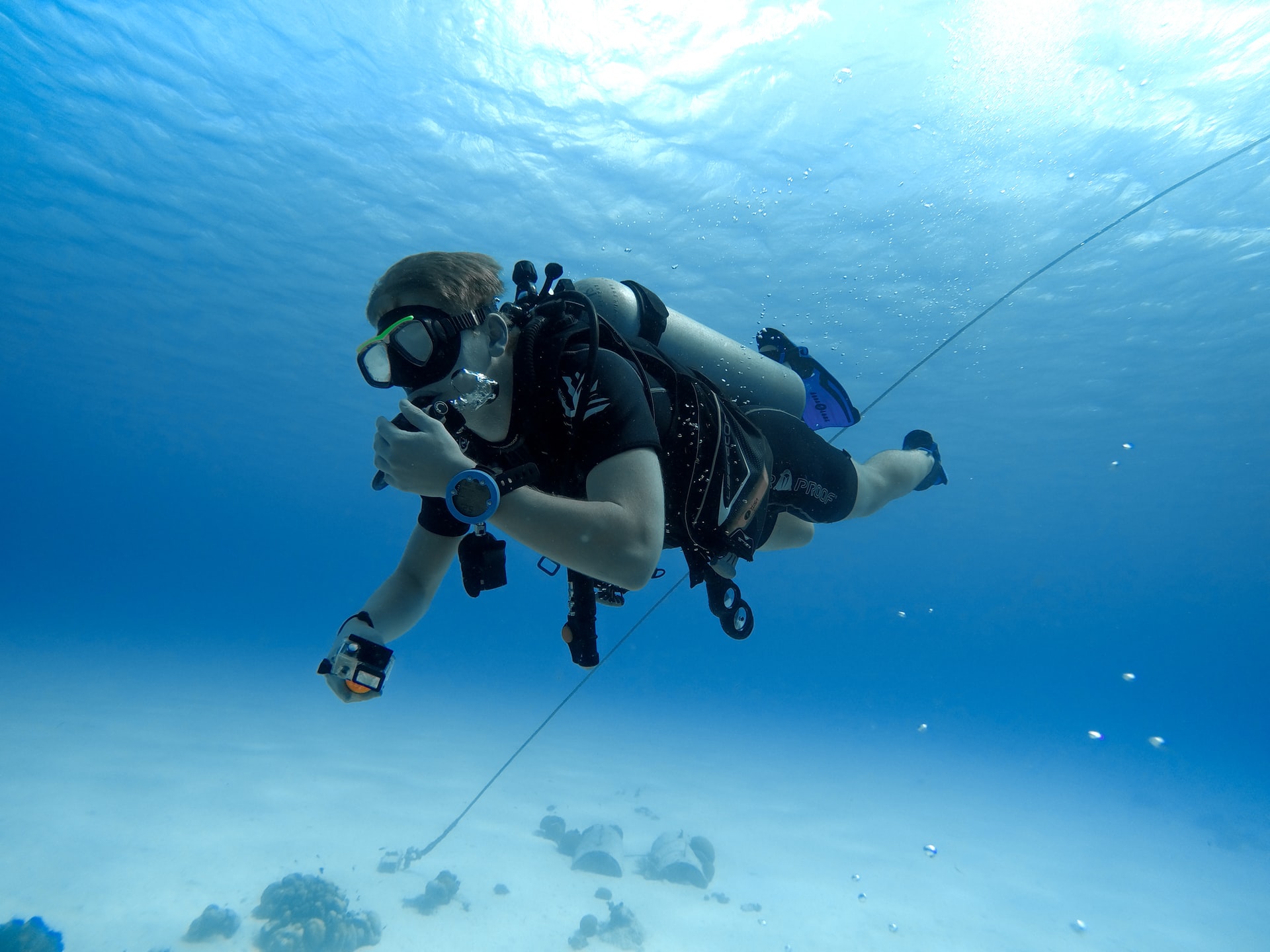
Are Scuba Divers Athletes? All the Facts (+New Competitive Forms)
-
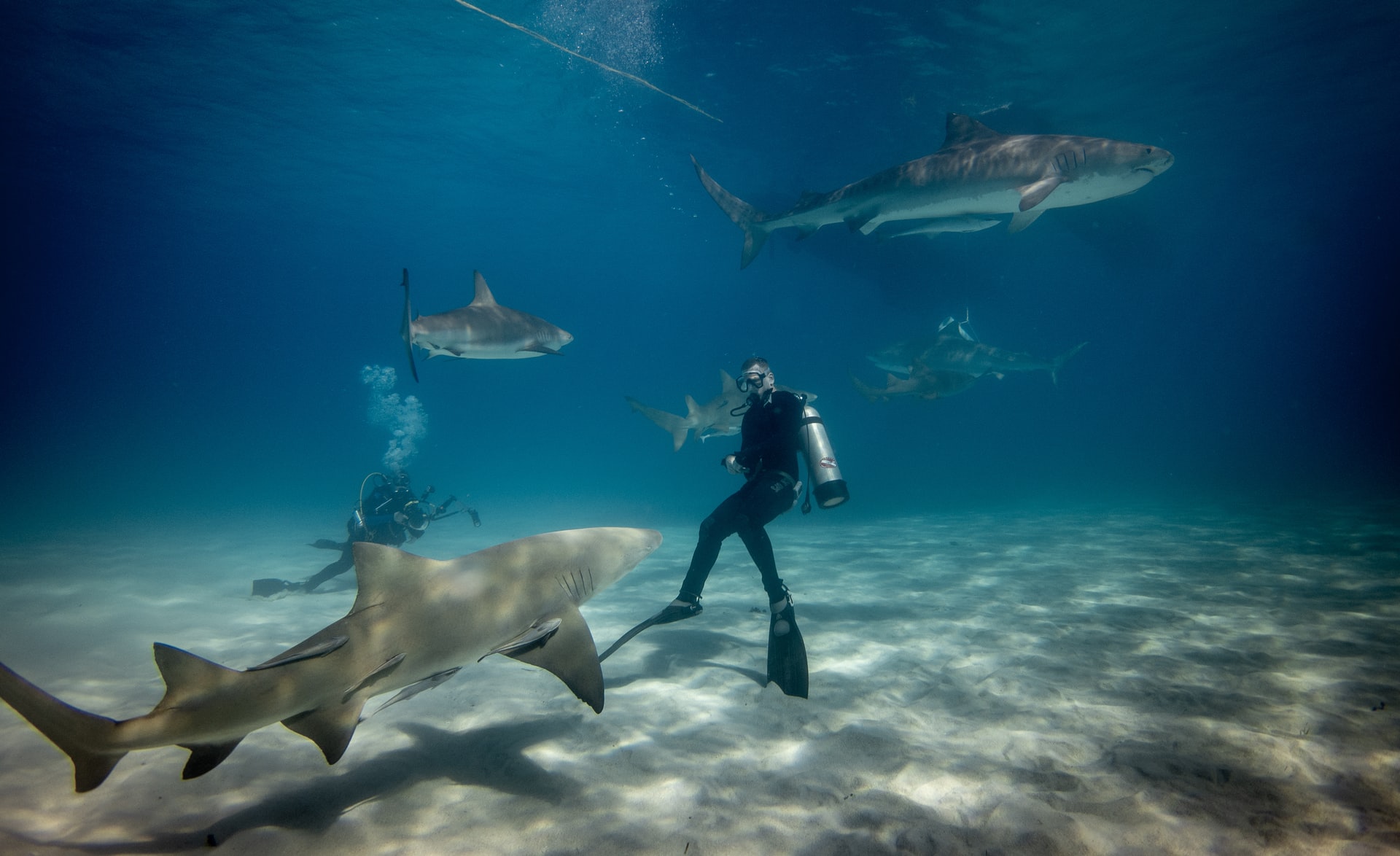
Are Sharks Scared of Scuba Divers? (What Every Diver Must Know)
-
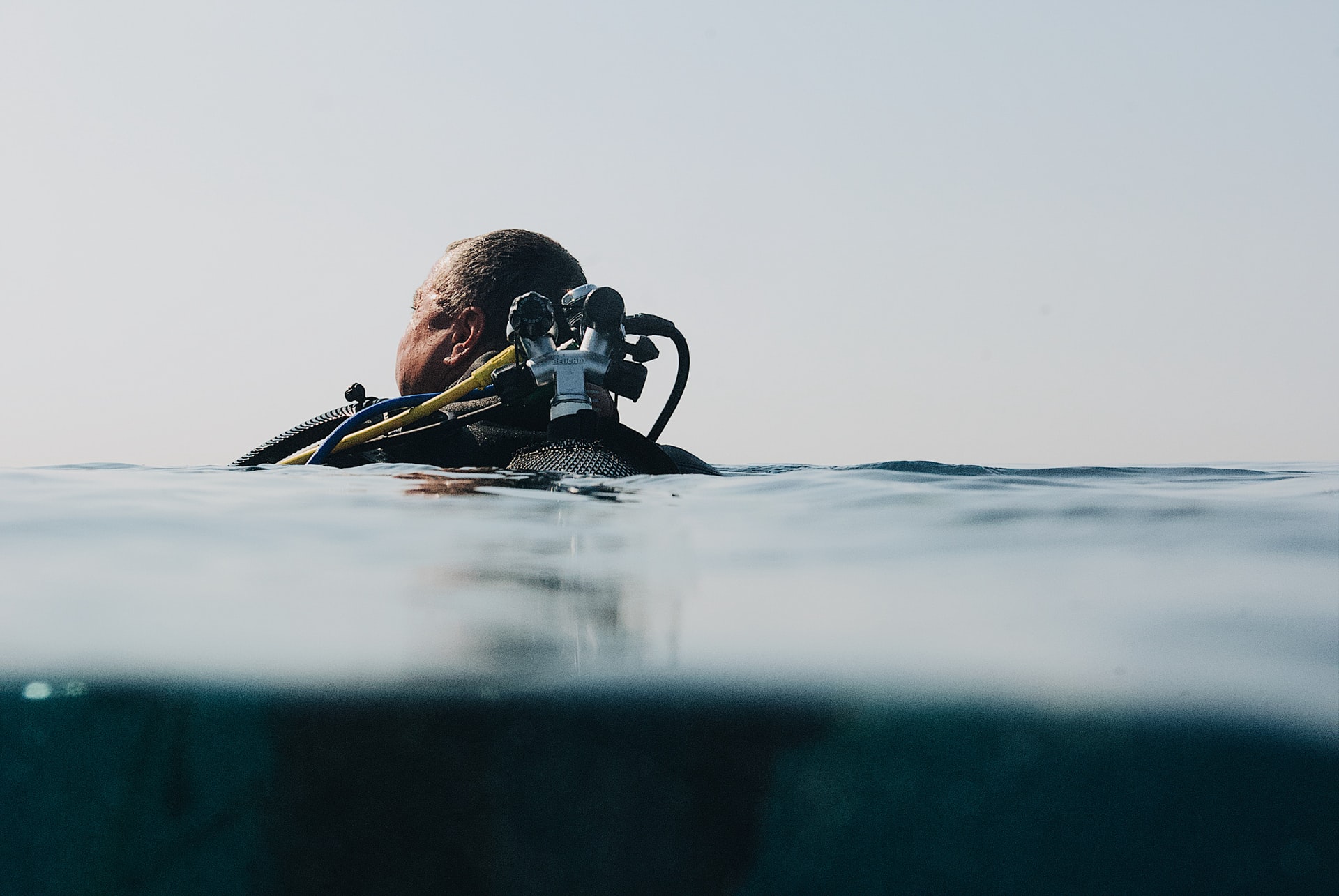
Who Should Not Scuba Dive? 17 Reasons (Every Diver Should Know)
-
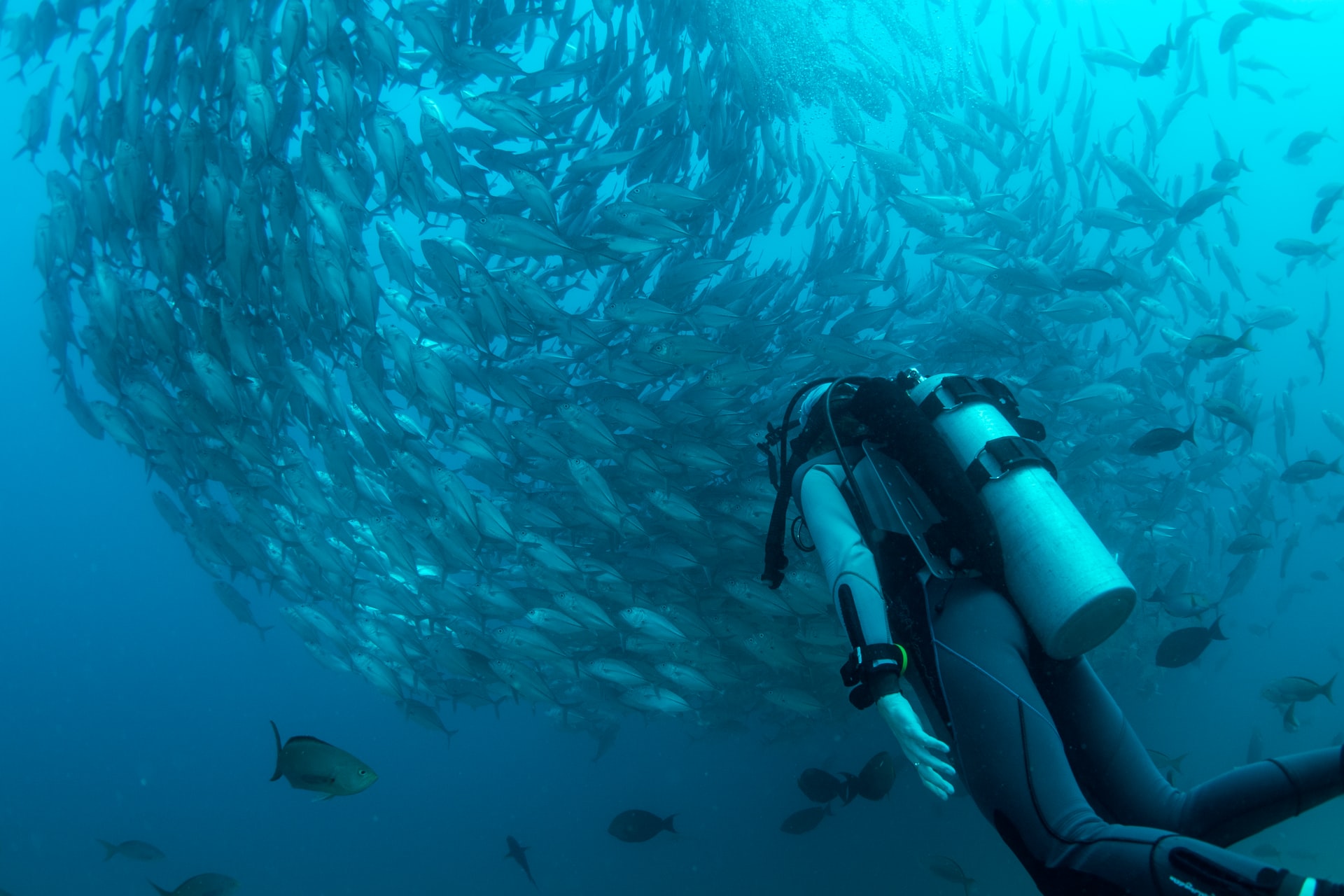
Should I Be Scared of Scuba Diving? 8 Common Fears (Debunked)
-
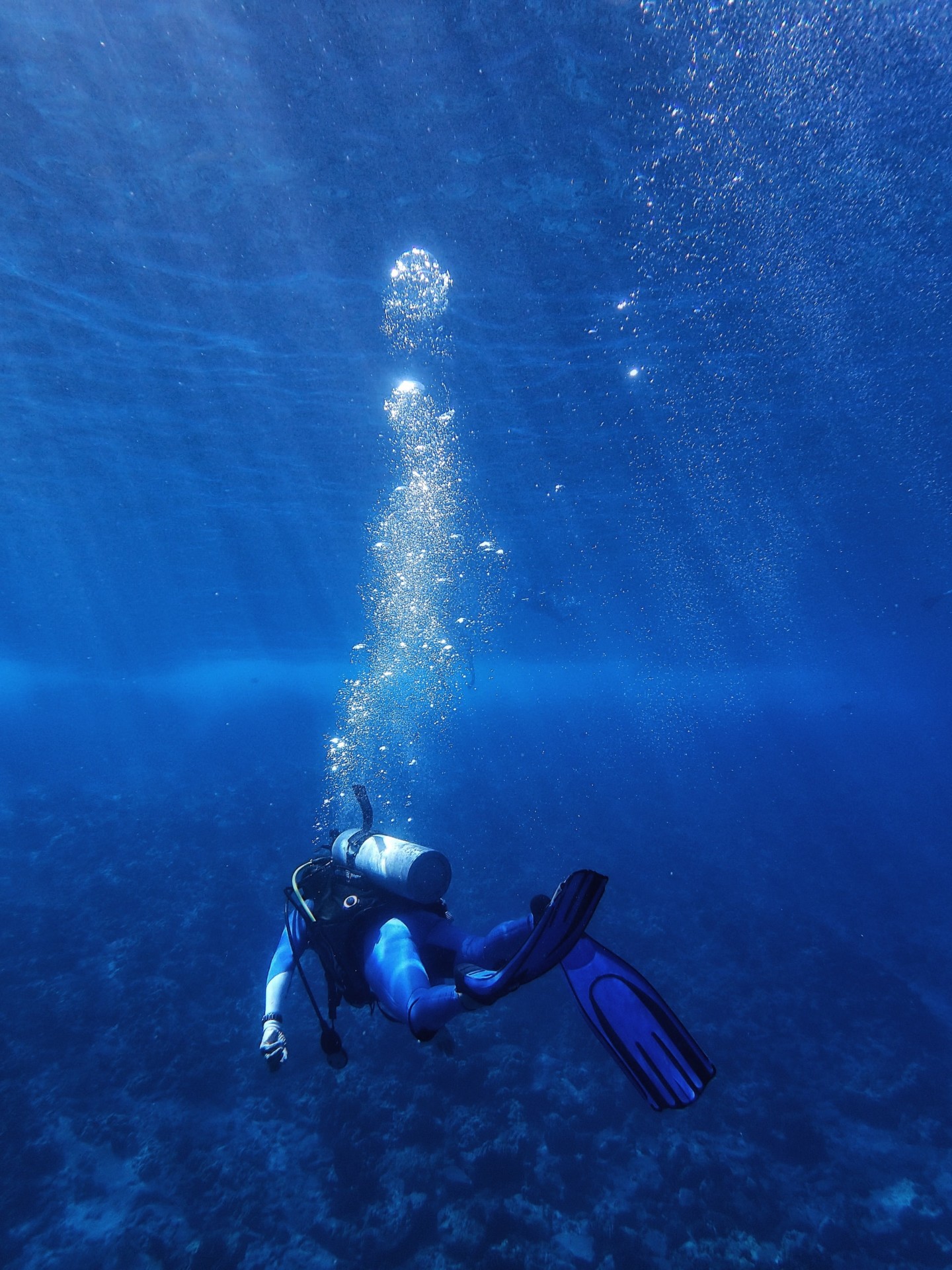
Why Do Scuba Divers Use More Air at Depth? (+4 Practical Tips)
-
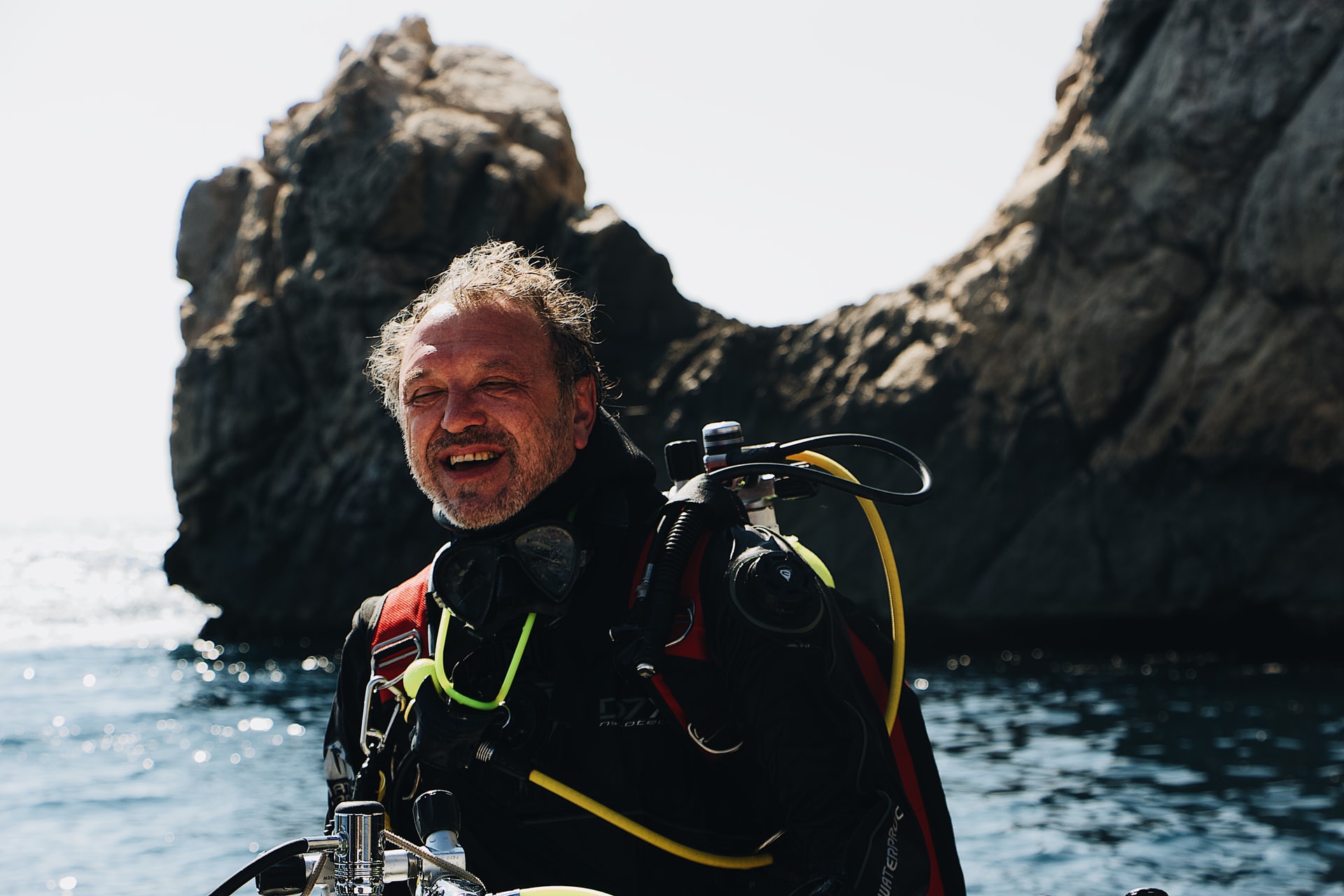
At What Age Should You Stop Scuba Diving? (+9 Tips for Older Divers)
-
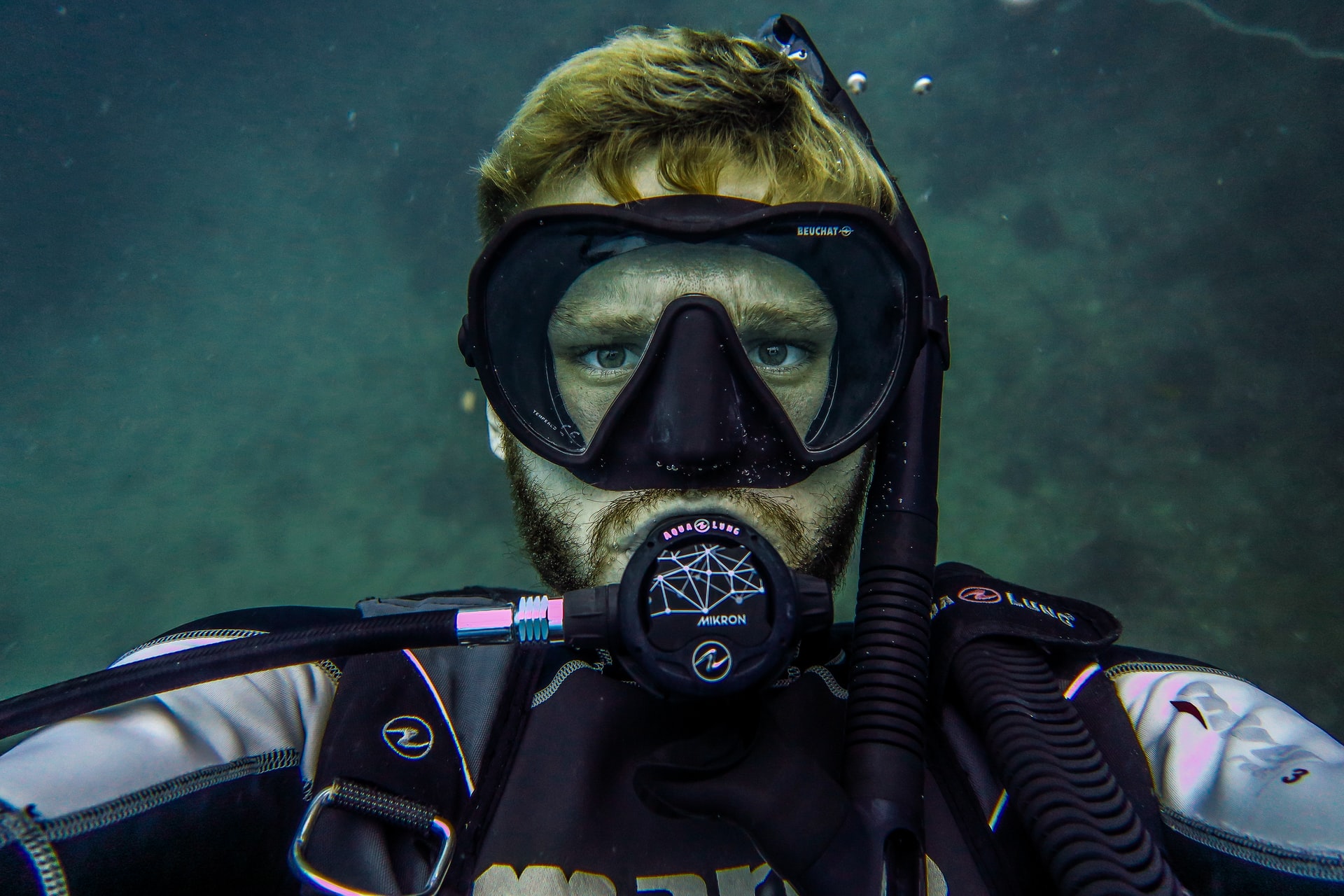
Should I Shave Before Scuba Diving? Crucial Facts (+9 Helpful Tips)
-
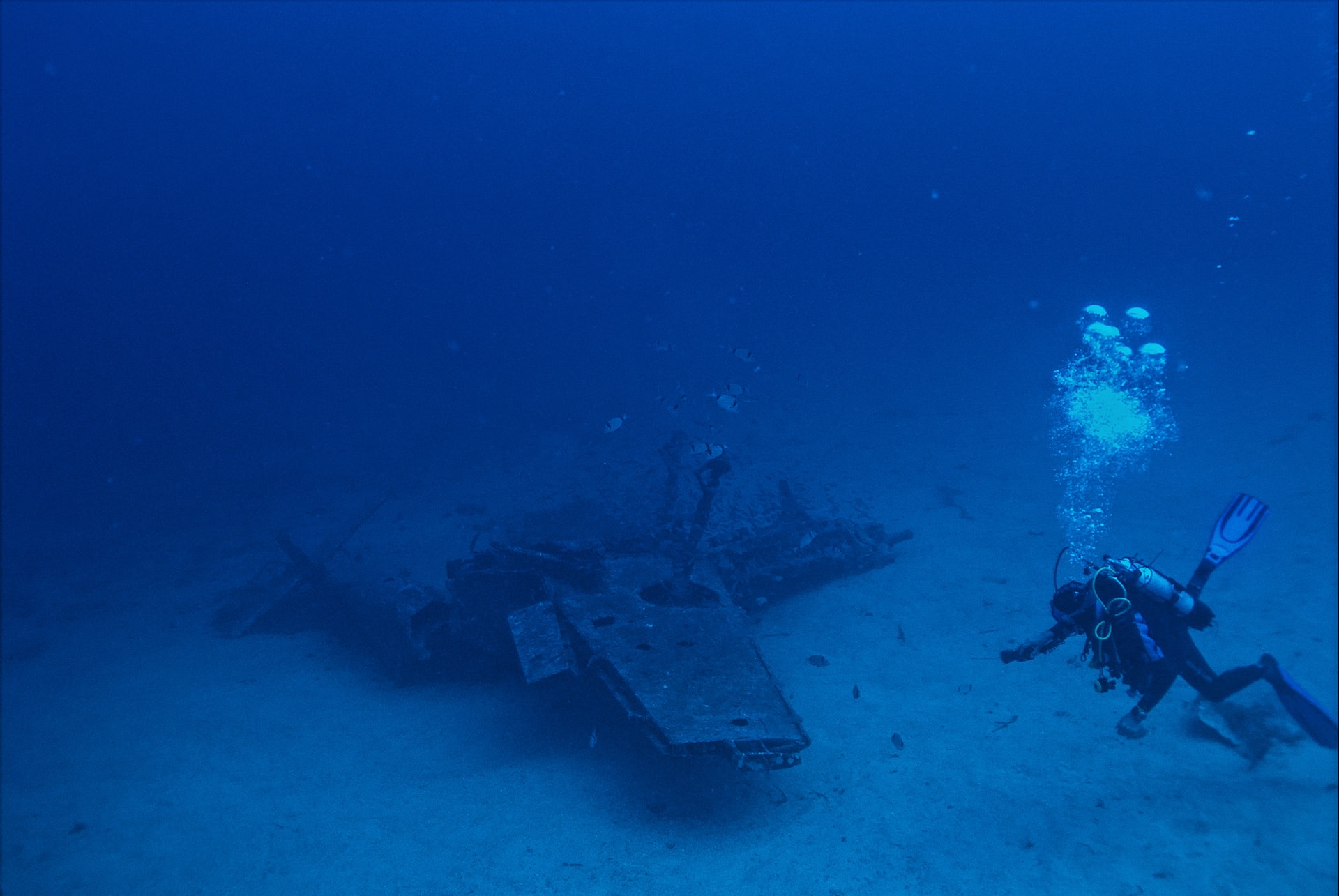
Why Do Scuba Divers Use Helium? (+Its Pros & Cons)
-
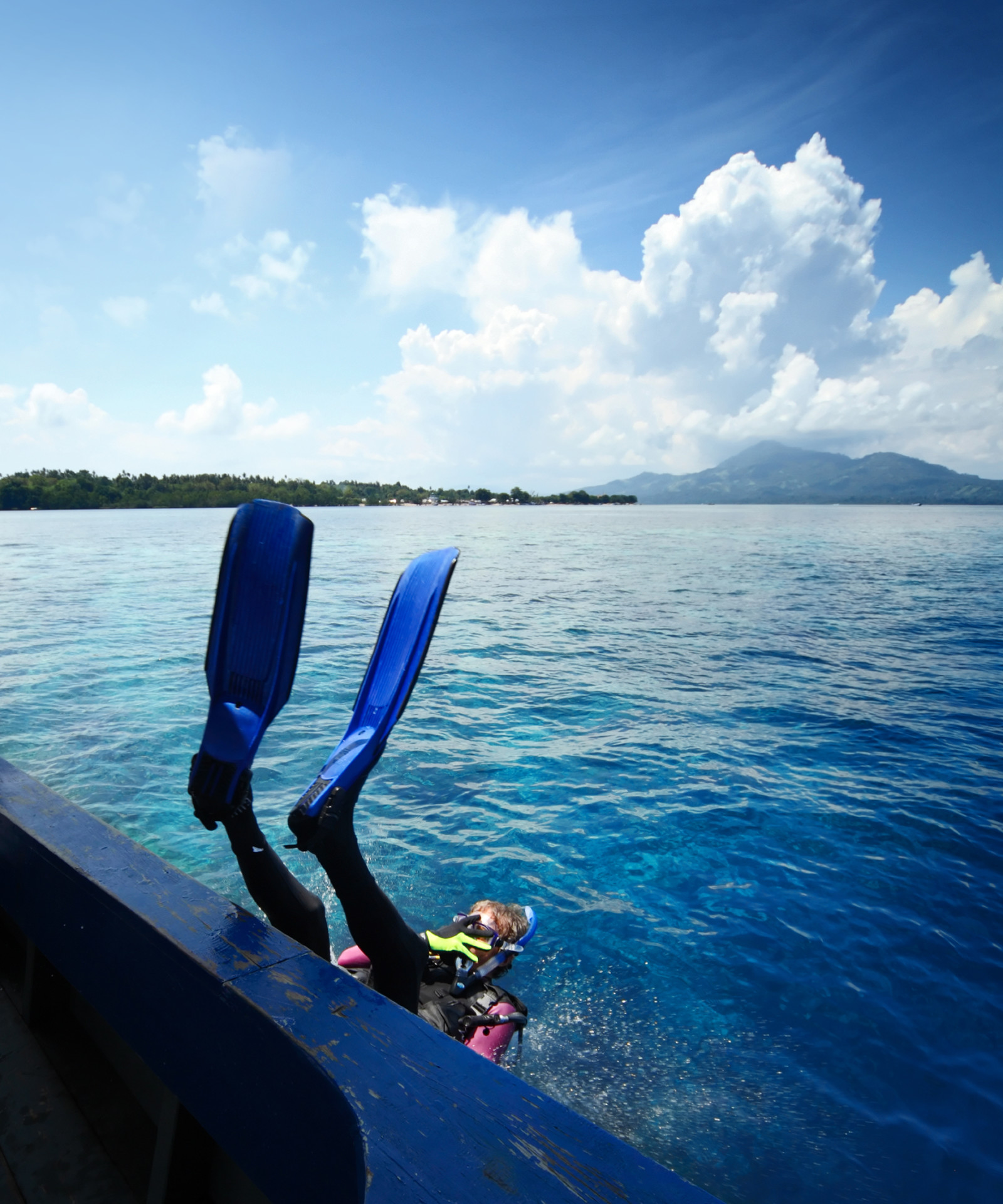
Why Do Scuba Divers Go in Backwards? (+3 Alternative Entries)
-
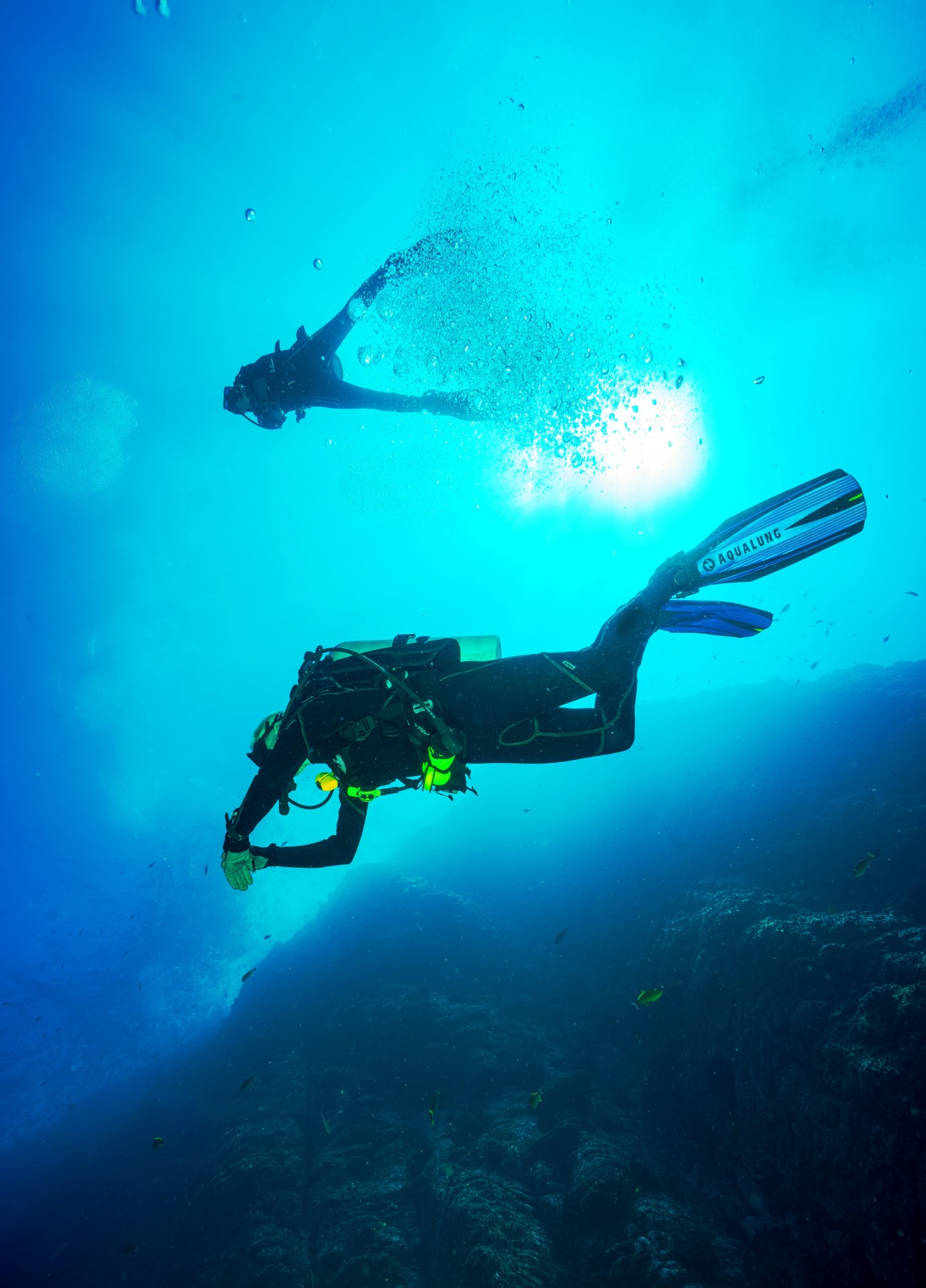
How Do Scuba Divers Sink and Float? (+Tips to Get It Right)

